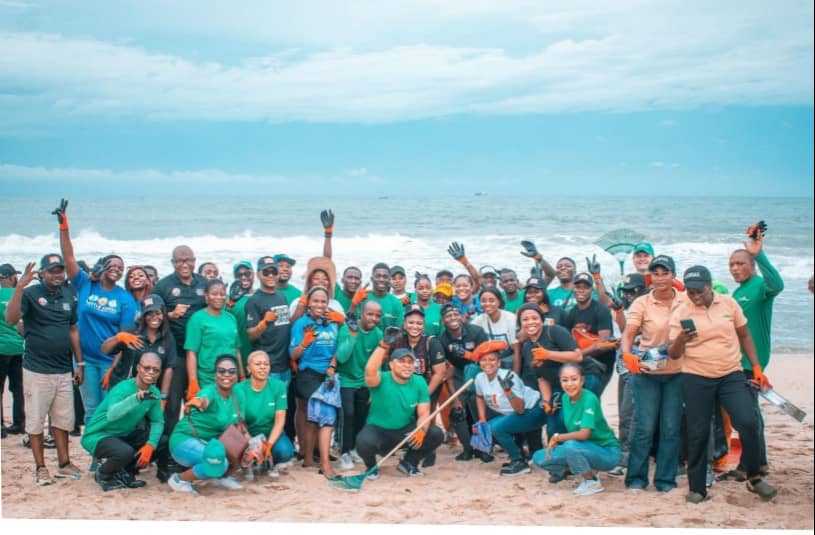
Dr. Adebisi Osim is the new President, Association of Professional Women Engineers of Nigeria (APWEN). She spoke to VICTOR GBONEGUN on how to bridge infrastructure deficit, avoid abandoned projects, deepen and tackle impediments to women’s participation in the engineering field.
Stakeholders have observed a decline in participation of women in engineering fields, which made the Nigerian Society of Engineers (NSE) to produce its first female president in 65 years. What are the impediments to women rising in the engineering field and how can we improve on them?
I DO not agree with the observed decline in participation of women in the engineering field. We have more girls in the field of engineering now than when I was in school.
However, some observed impediments to women participation in engineering fields would be the unconscious bias in hiring and workplace biases in areas of promotions, which can result in women being overlooked for opportunities, hindering their professional growth. The lack of women in leadership positions within engineering organisations perpetuates a cycle of limited opportunities and inadequate representation for women.
Addressing these impediments requires a comprehensive and collaborative effort from educational institutions, employers, policymakers, and the broader society to promote a more inclusive and supportive environment for women in engineering. Initiatives such as mentorship programmes, diversity and inclusion training, and policy changes can contribute to breaking down these barriers.
The Association of Women Engineers of Nigeria (APWEN) has several mentorship programmes geared in this direction such as promotion of Science, Technology, Engineering, and Mathematics (STEM) education and giving of scholarships for girls. All these we have been doing and shall pursue it through government-industry-academia collaborations.
Nigeria is confronted by a huge infrastructural deficit and lack of technological equipment that could be deployed for agricultural products processing. What role (s) should engineers play amid these challenges?
There are several key roles for engineers, to mention a few such as infrastructure development, technology integration, renewable energy, irrigation systems, food processing equipment, skills development and environmental engineering.
Engineers can contribute to the planning, design, and construction of essential infrastructure such as roads, bridges, irrigation systems, and processing facilities for agricultural products. This will improve transportation and enable more efficient processing. Engineers can lead the integration of modern technologies, including automation and smart systems, into agricultural processes.
This can enhance efficiency, reduce waste, and improve the overall productivity of the agricultural sector. Engineers can work on the development and implementation of renewable energy solutions, such as solar or wind power, to provide sustainable and reliable energy for agricultural processing facilities, especially in remote areas with limited access to the grid so that they can design and implement efficient irrigation systems to improve water management in agriculture, ensuring that crops receive adequate water for optimal growth.
Essentially, engineers can design and manufacture equipment for the processing of agricultural products. This includes machinery for sorting, cleaning, packaging, and preserving crops, contributing to the value addition of agricultural products.
Nigerian engineers can play a role in training local communities and farmers on the proper use and maintenance of technological equipment. This ensures sustainable and effective utilisation of the infrastructure and technology. They can also design waste management systems to handle agricultural by-products and waste in an environmentally friendly manner. This includes the development of biogas systems or recycling processes.
By actively engaging in these roles, engineers can play a pivotal part in addressing Nigeria’s infrastructural deficit and promoting technological advancements in the agricultural sector, ultimately contributing to economic development and food security. Collaboration between engineers, government agencies, local communities, and other stakeholders is essential for the success of these initiatives.
Statistics show that Nigeria still has over 20 million out-of-school children. What is APWEN doing through STEM fields to assist girl-child in educationally disadvantaged states?
Our initiatives are based on broader efforts aimed at promoting STEM education and empowering girls across the federation. These include STEM education programmes, scholarship and mentorship programmes, as well as community outreach programmes.
As a professional body for women, APWEN establishes and supports STEM education programmes that target girls in primary and secondary schools. This is achieved by organising workshops, seminars, and technical booth camps where hands -on experience in STEM are provided to generate interest from a young age.
The association provides scholarships and mentorship opportunities for girls pursuing STEM education, particularly in areas with higher rates of out-of-school children. We also connect girls with female engineers and role models who can guide and inspire them. APWEN aims to remove financial barriers and encourage them to pursue STEM education through accessible national and international support.
Also, the association, in collaboration with local communities, schools, and the government, APWEN is determined to raise awareness about the importance of education, particularly in STEM fields for girls. It’s important to note that the success of these initiatives often relies on collaboration, sustainable planning, and a deep understanding of the local context.
APWEN, in conjunction with other stakeholders, can make significant strides in addressing the educational challenges faced by girls in STEM fields in educationally disadvantaged states through continuously contributing to the improvement of educational infrastructure in these states, ensuring that schools have adequate resources for STEM education through request for donations from government, corporations bodies and individuals to equip laboratories and train personnel.
Despite the local content law, engineers have consistently lamented non-patronage by the government across all levels in project execution. Why is this so? What should be done to change the narrative?
The challenges being faced by engineers despite the local content law can be attributed to several factors. Some of which are, bureaucratic bottlenecks, anti-corruption measures, skill development, promotion of collaboration, government needs commitment, encouraging enforcement of local content laws and partnership.
The government should work towards simplifying bureaucratic procedures related to project execution. Streamlined processes can reduce delays, making it more attractive for engineers to engage in government projects. Implementing and enforcing robust anti-corruption measures is essential. Transparency in the procurement process and project execution can help minimise corruption and build trust between the government and engineering firms.
Furthermore, there is the need to invest in training and capacity-building programmes for local engineering firms to enhance their skills and capabilities. This can make them more competitive and attractive for government projects.
We also need to ensure strict enforcement of local content laws and regulations. Penalties for non-compliance should be significant enough to deter violations, while partnerships need to be encouraged. We need also to foster collaboration between local engineering firms and international partners.
This can lead to knowledge transfer, technology exchange, and joint ventures that enhance the overall capacity of local firms. Government needs to demonstrate strong political will to support and prioritise local content. This commitment should come from the highest levels of government to ensure that policies are consistently implemented.
Changing the narrative requires a holistic approach that addresses both systemic issues and specific challenges faced by local engineering firms. It involves creating an environment that fosters trust, encourages innovation, and provides equal opportunities for local firms to participate and excel in government projects. Collaboration between the government, industry stakeholders, and engineering associations is essential for sustained progress.
Over the years, the training of engineers has witnessed formidable challenges ranging from poor funding to inadequate facilities. How can these issues be resolved?
Addressing these issues requires a multi-faceted approach involving various stakeholders. Some strategies to consider must include increased funding. I advocate for increased government funding for engineering education at all levels, from primary to tertiary institutions. Adequate budget allocation is crucial for maintaining quality infrastructure, hiring qualified faculty, and providing necessary resources.
Also, there is a need for Public-Private Partnerships (PPPs) to encourage collaboration between educational institutions and the private sector. This should involve financial support, mentorship programmes, and industry-relevant curriculum development. We need to establish alumni networks to harness the support of successful graduates. Alumni can contribute financially, provide mentorship, and advocate for their alma mater.
Nigeria needs to allocate specific funds for research and development within engineering institutions. This can enhance the quality of education, promote innovation, and contribute to solving real-world challenges, develop a long-term plan for upgrading and maintaining engineering facilities. This includes laboratories, workshops, and classrooms equipped with modern technology to meet industry standards.
The nation must also invest in ongoing training and development programmes for faculty members. This ensures that educators stay current with industry trends and possess the necessary skills to deliver high-quality education, establish scholarship programmes to attract and retain talented students in engineering fields. This can alleviate financial barriers and encourage more students to pursue engineering education.
Collaboration with industry stakeholders is equally crucial to design and update the curriculum based on current industry needs. This ensures that graduates are well-prepared for the workforce.
Currently, there are high numbers of abandoned projects across the country, a development many people described as a ‘culture of waste’. How can we avert such menace?
Addressing the issue of abandoned projects in Nigeria requires a comprehensive and systemic approach to prevent the recurrence of this problem. Here are several strategies that can be implemented to avert the menace of abandoned projects.
There is a need to conduct thorough feasibility studies before initiating any project to assess the viability, cost, and potential challenges. Also, one must develop realistic project plans that consider all factors, including funding sources, timeframes, and potential risks.
Additionally, involving relevant stakeholders, including local communities, in the decision-making process is important. We need to conduct regular consultations to gather input, address concerns, and build local ownership of projects.
As the 18th president of APWEN, what are your plans to reposition the engineering profession?
My plans include repositioning the engineering profession to get support for capacity building and development programmes of our members, align with female engineers in the ministries, companies, to be part of our activities, get partners in our mentorship and scholarship programmes for the primary and secondary with the aim of encouraging more girls in engineering, collaborate with government agencies and other stakeholders in the area of training and research and partner organisations in career fair where young engineers can easily get jobs.
QUOTE: “Changing the narrative requires a holistic approach that addresses both systemic issues and specific challenges faced by local engineering firms. It involves creating an environment that fosters trust, encourages innovation, and provides equal opportunities for local firms to participate and excel in government projects. Collaboration between the government, industry stakeholders, and engineering associations is essential for sustained progress.”













